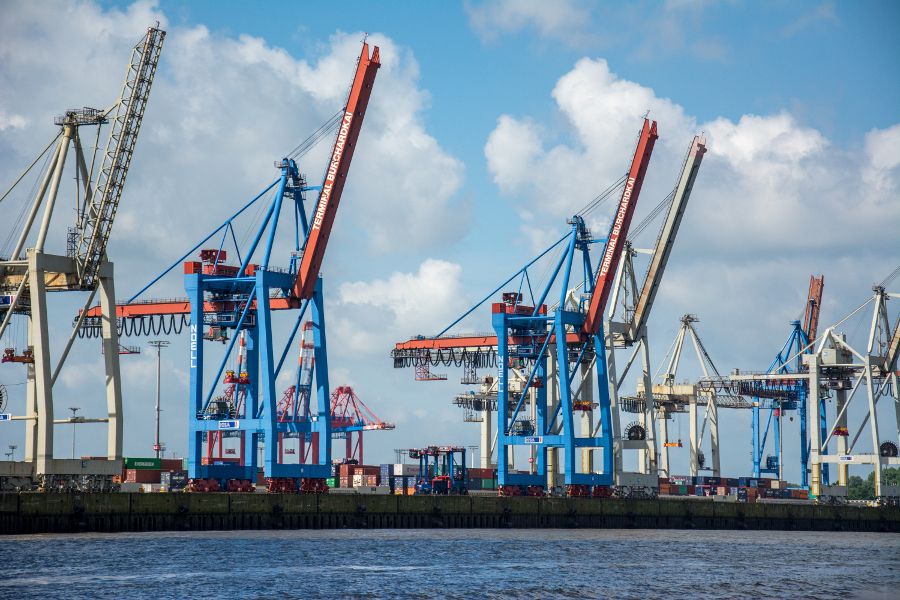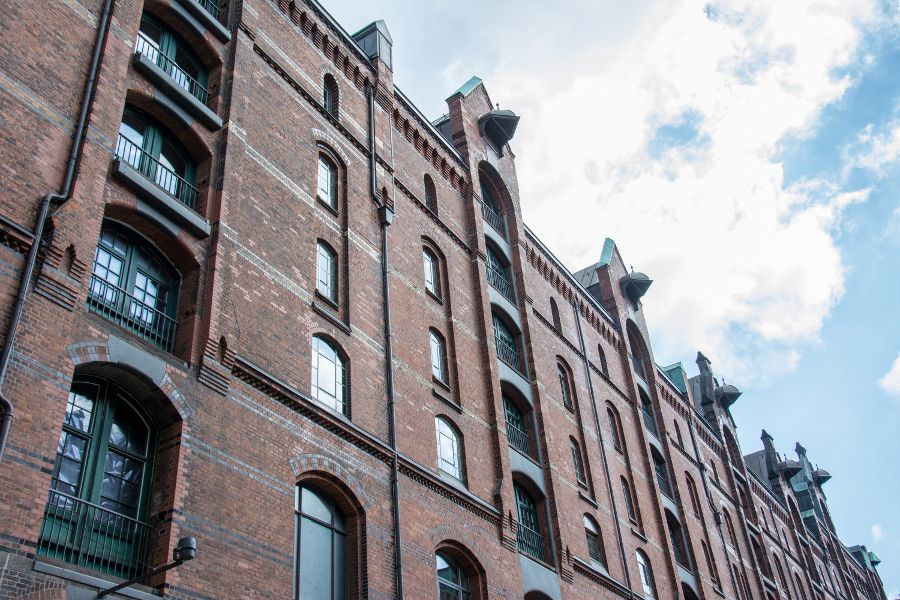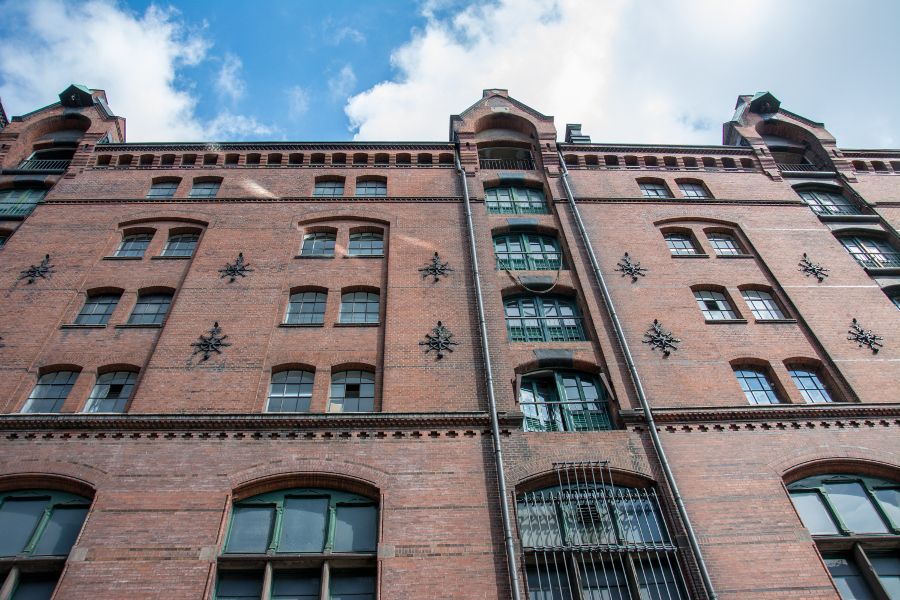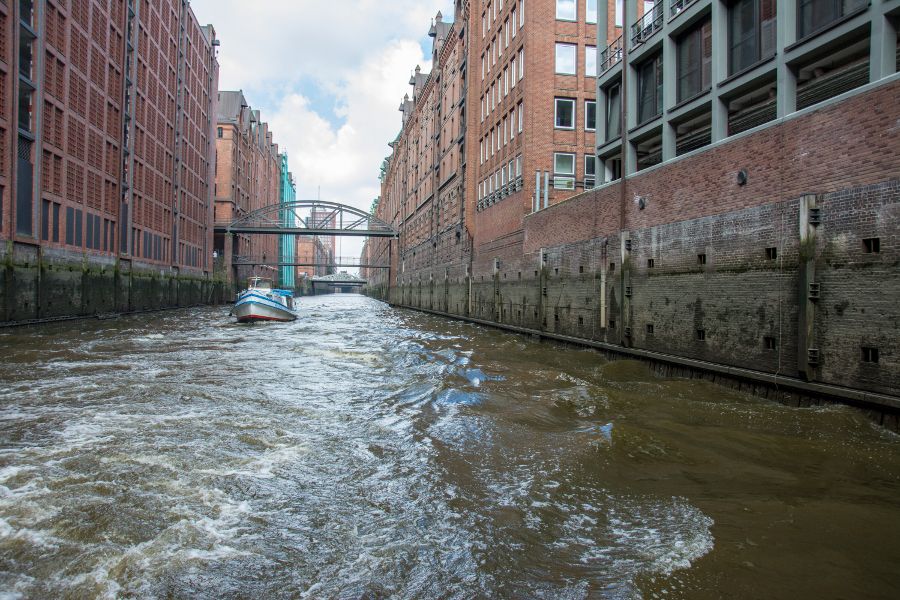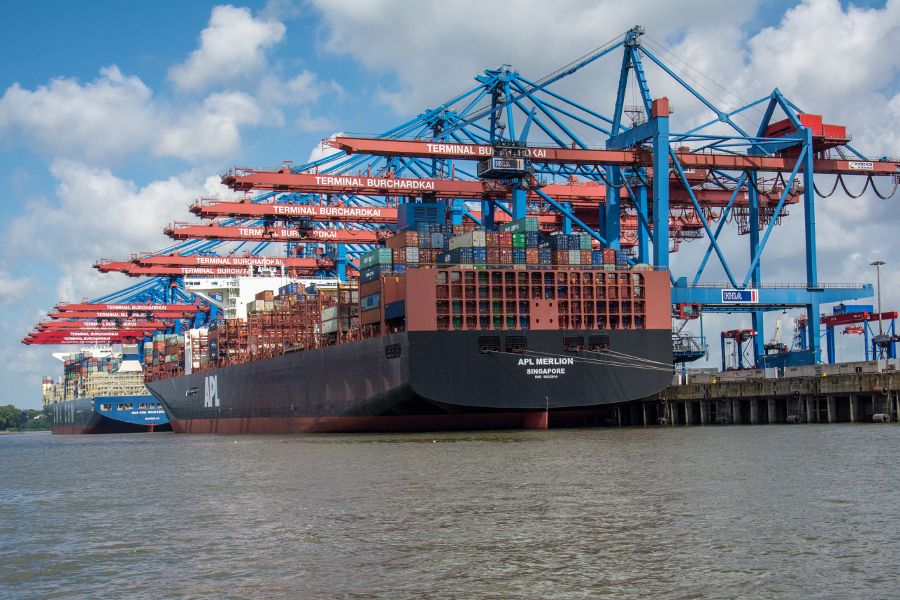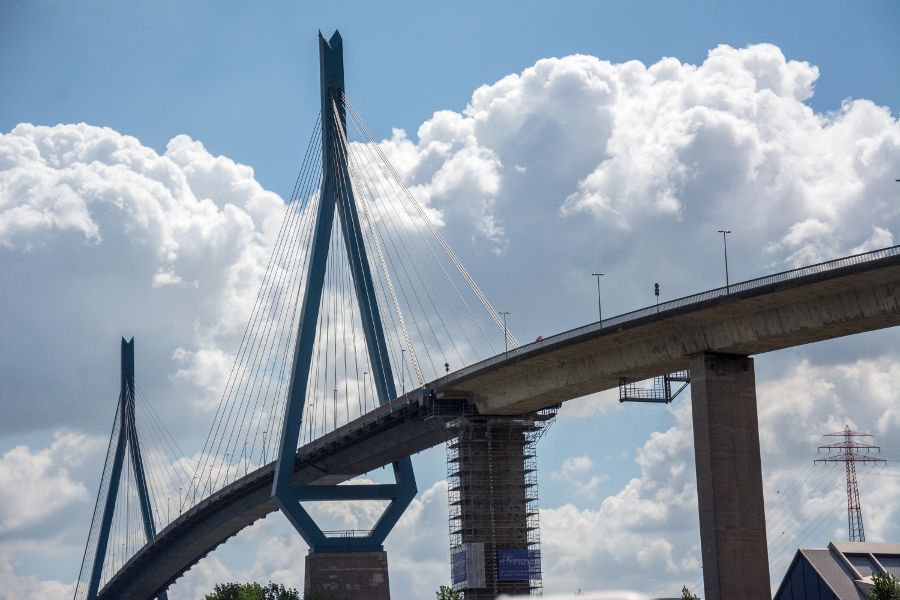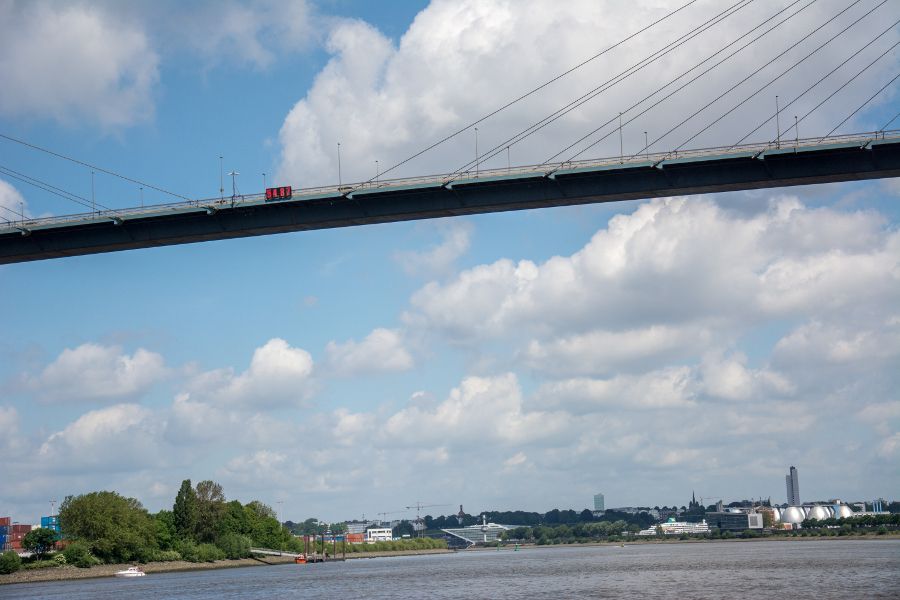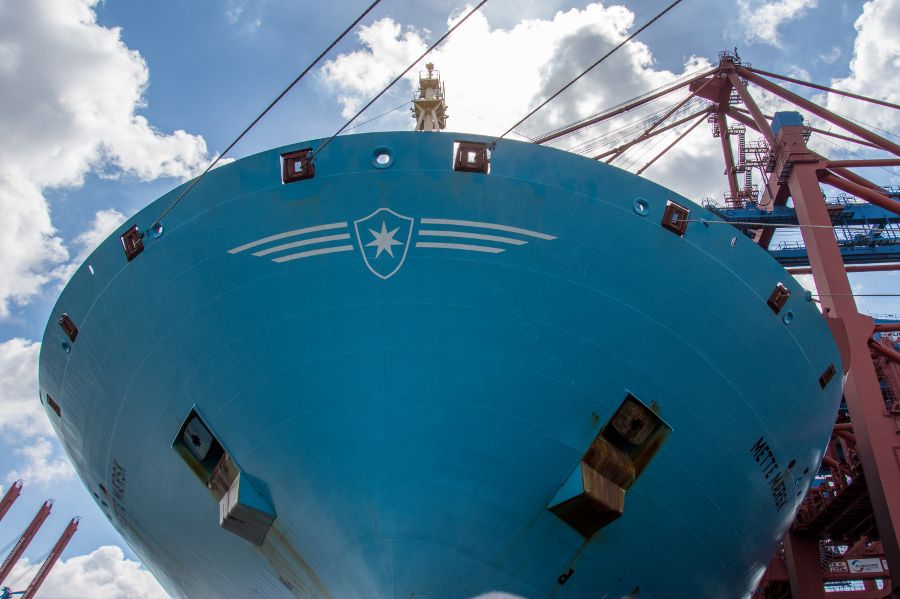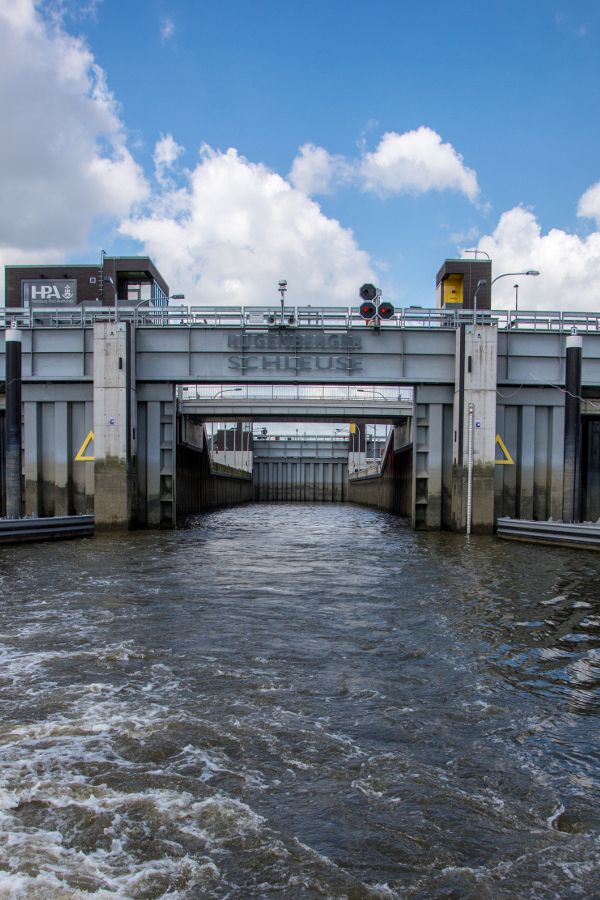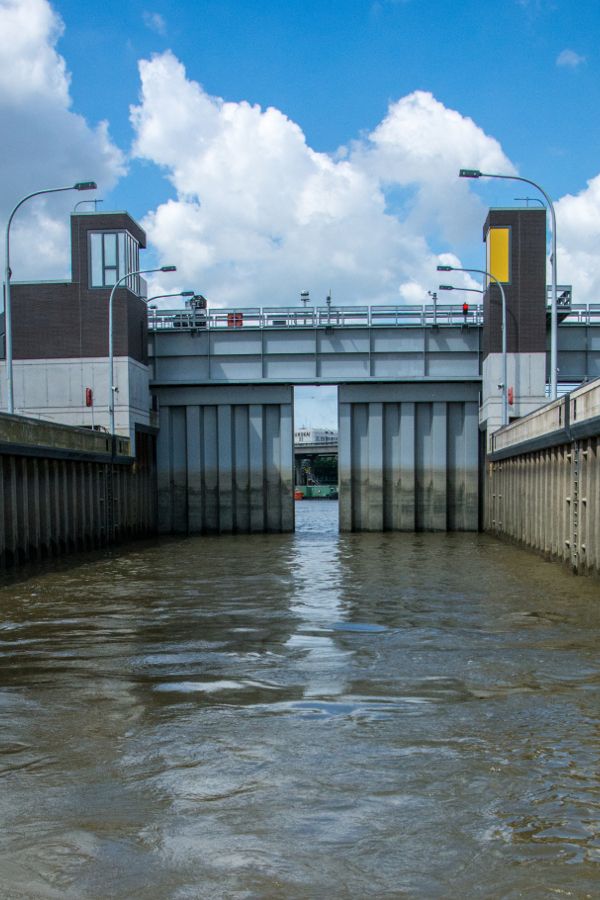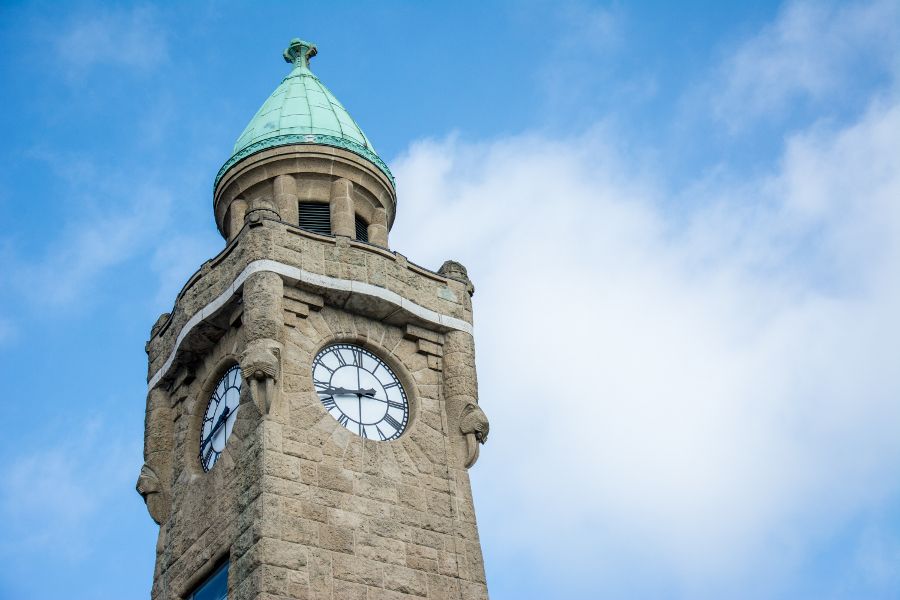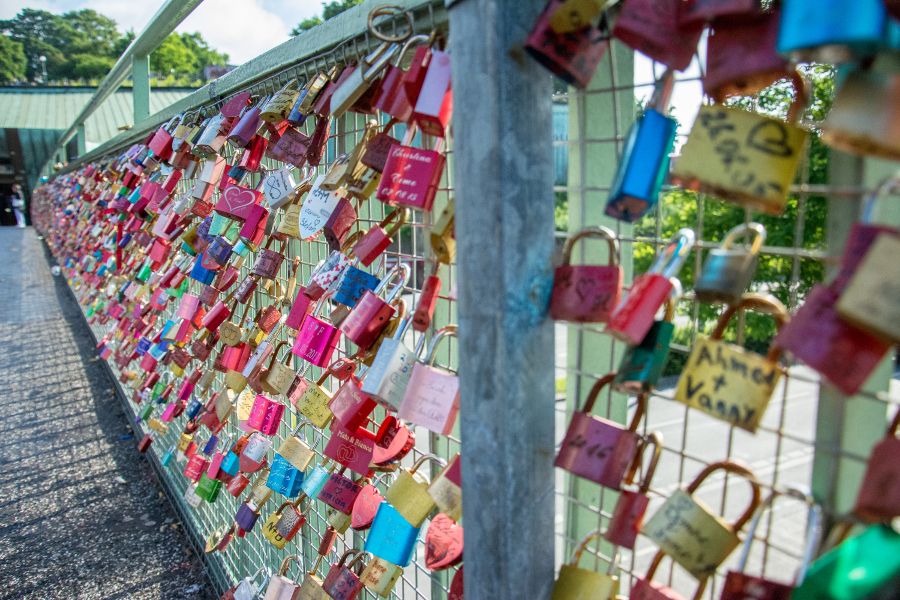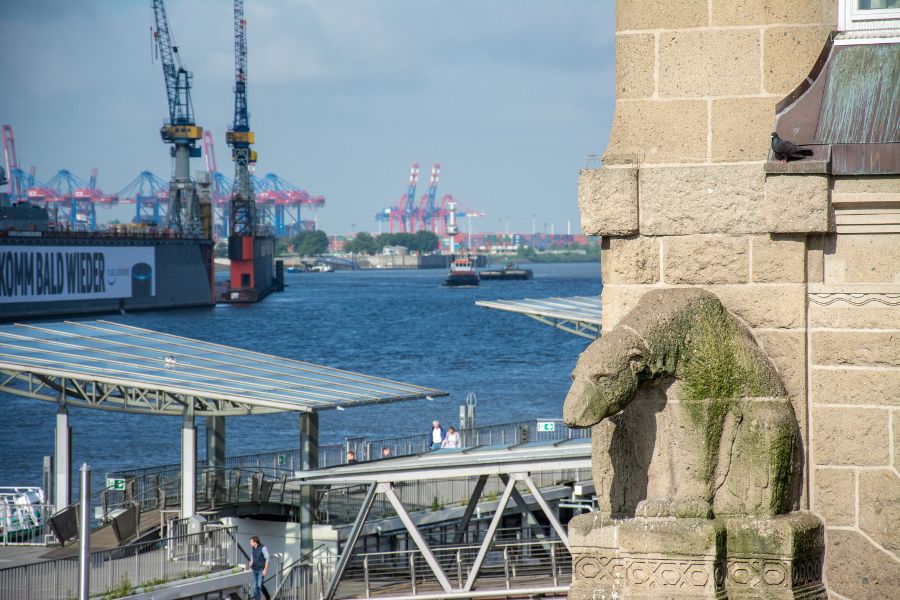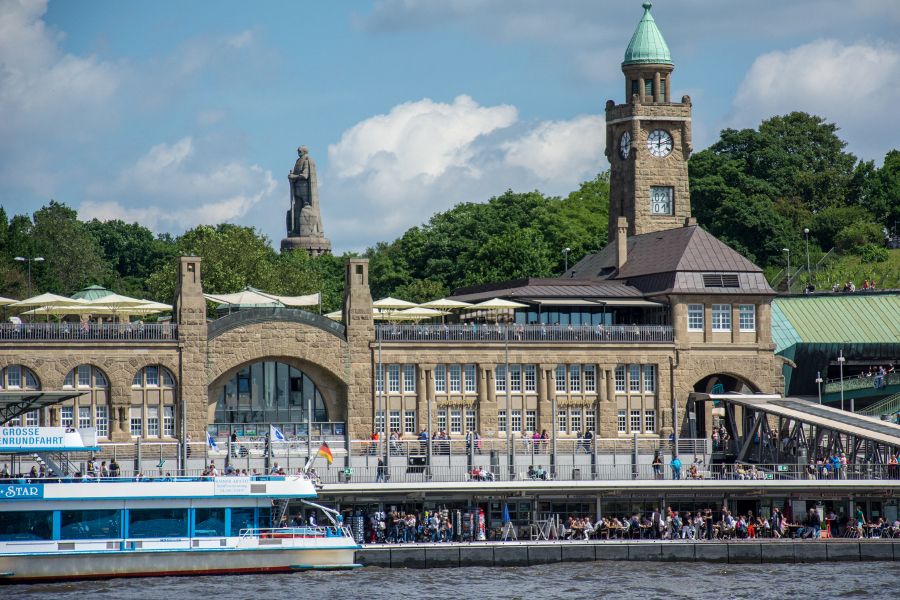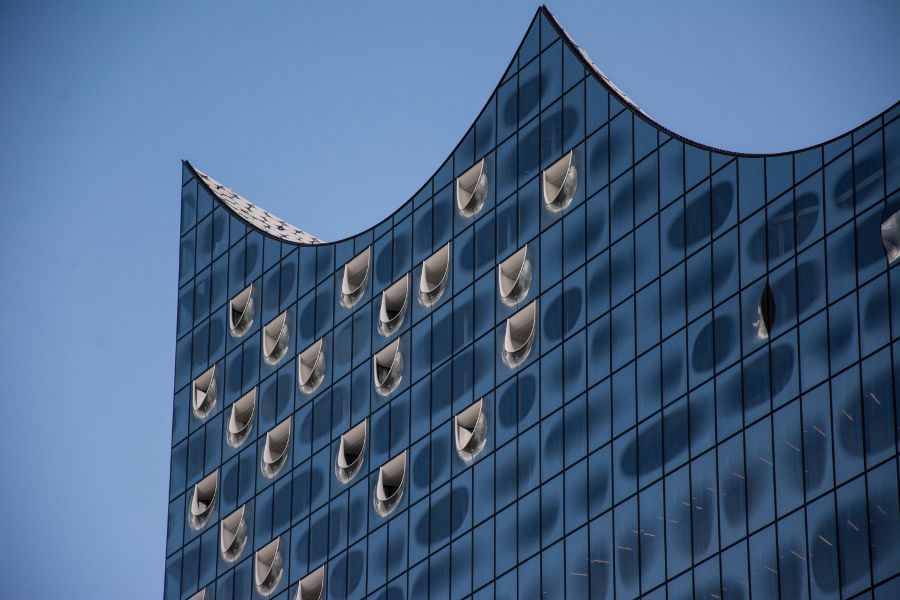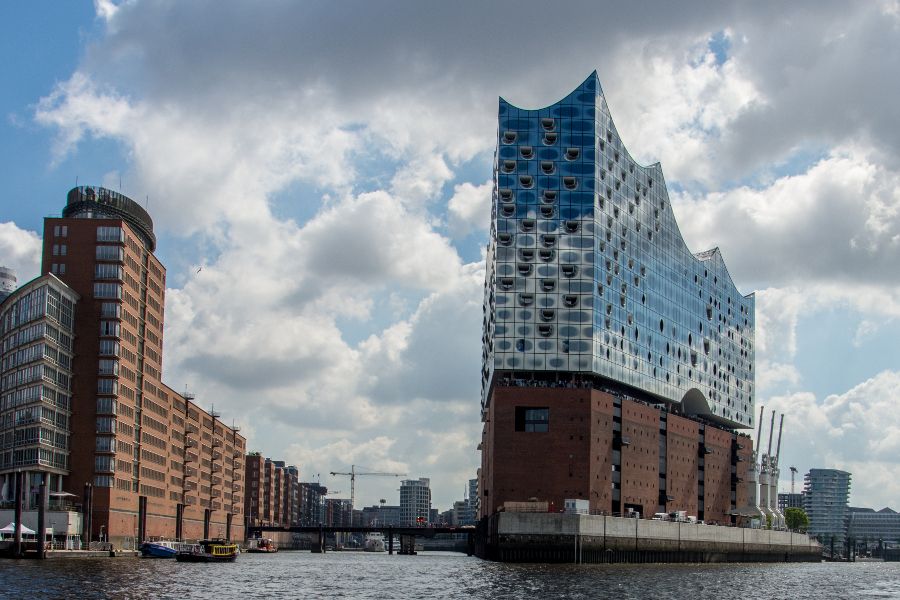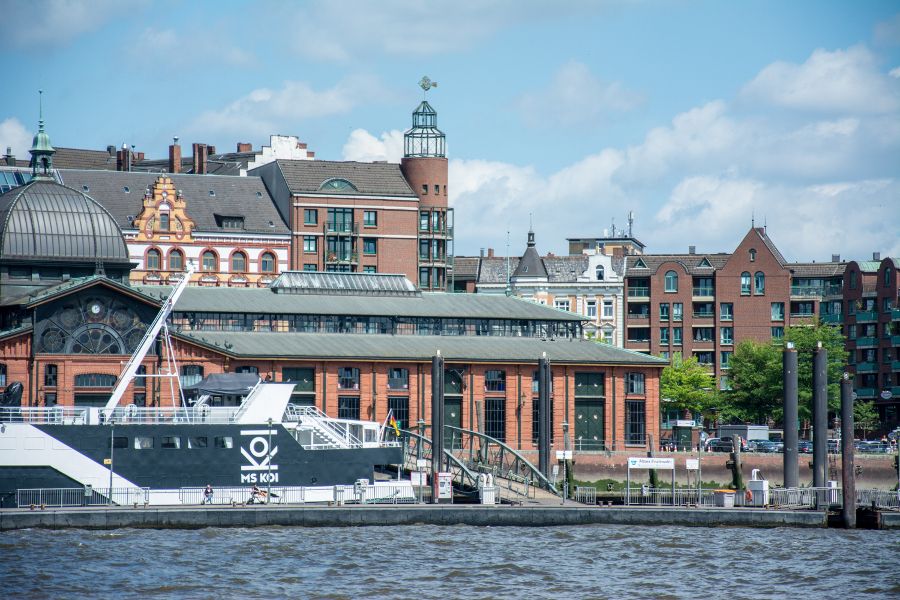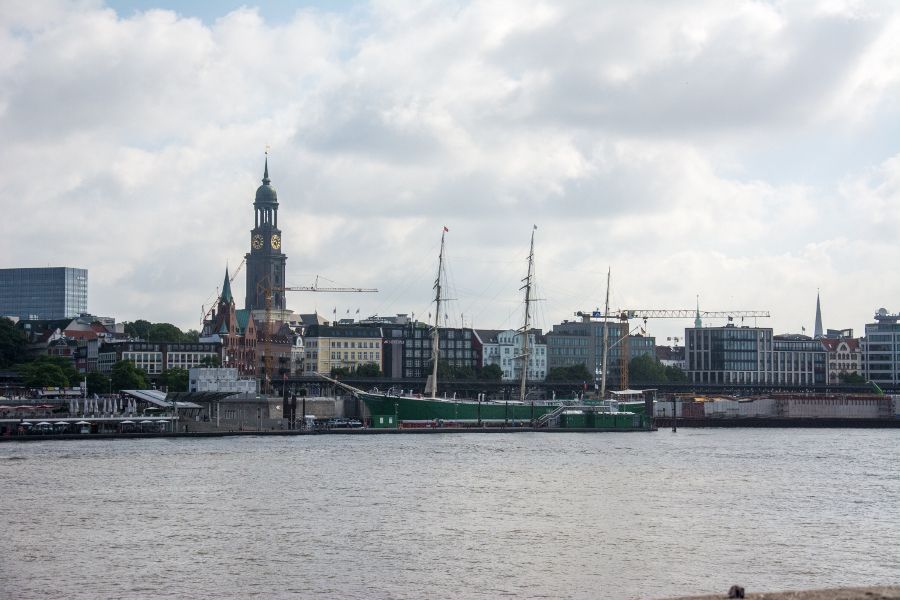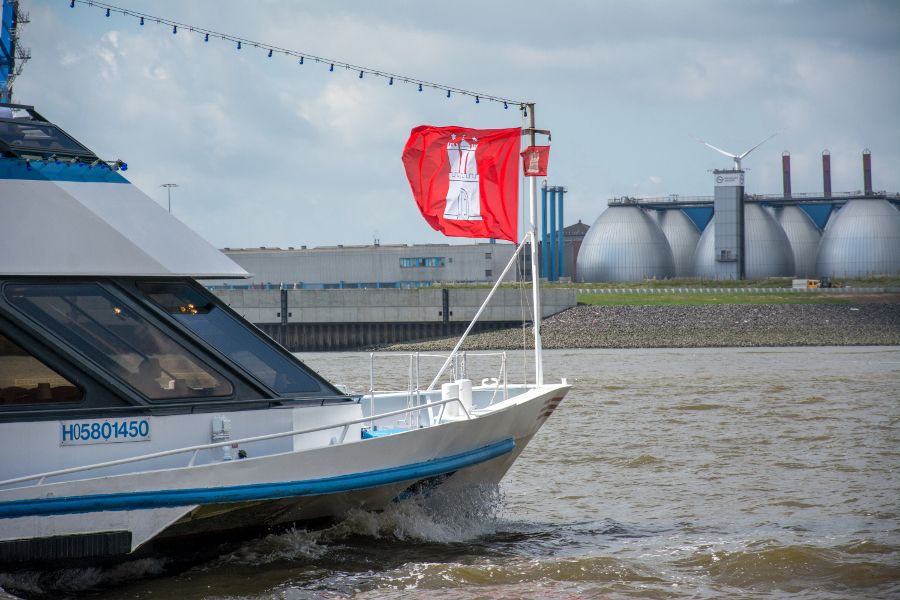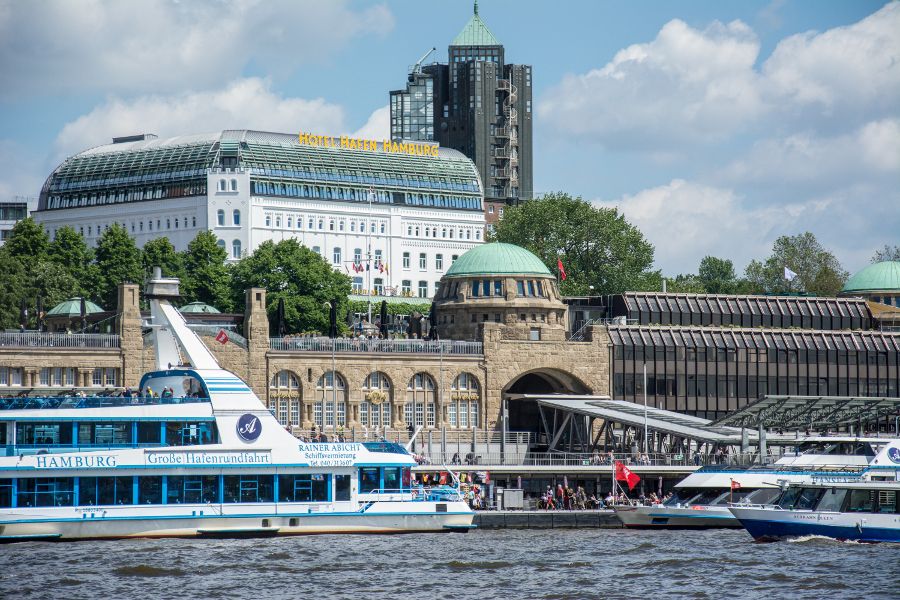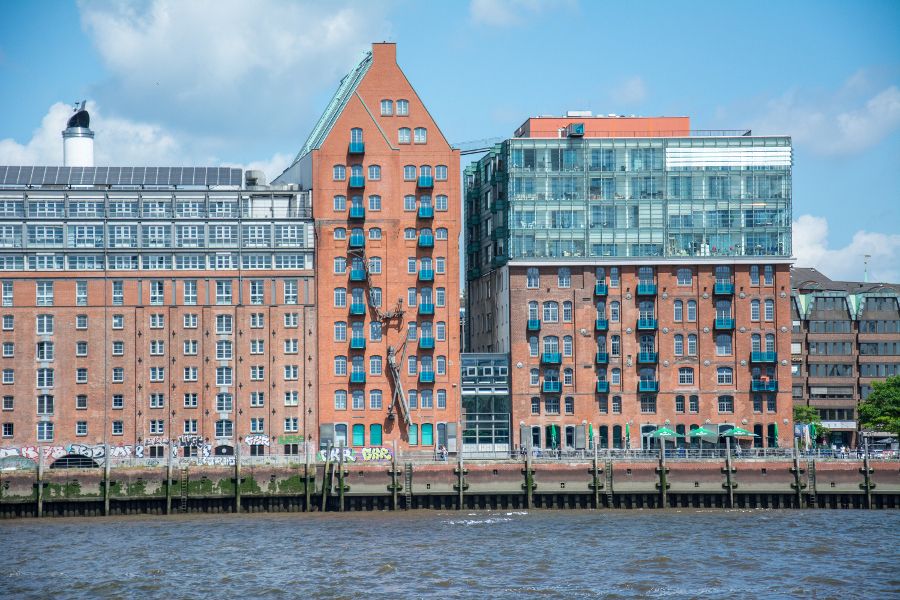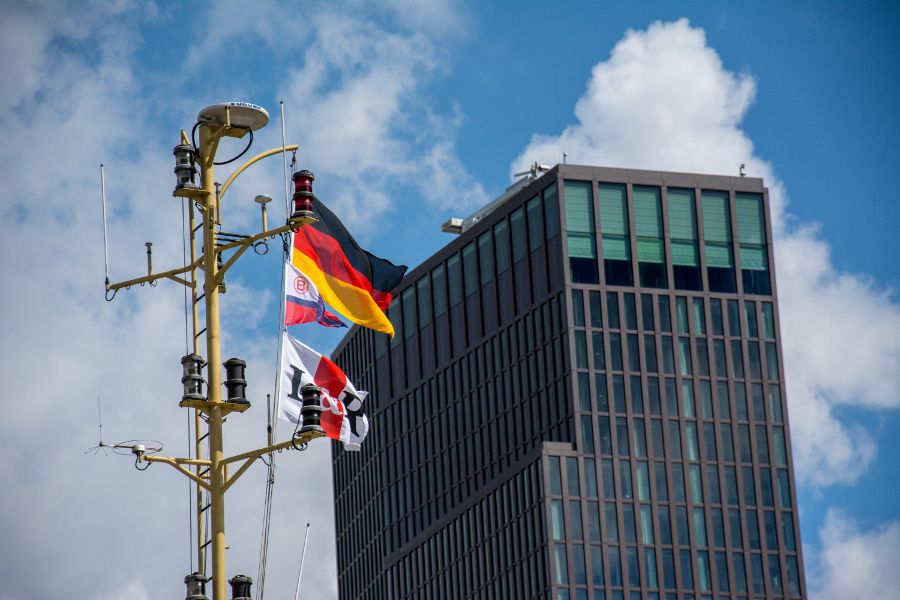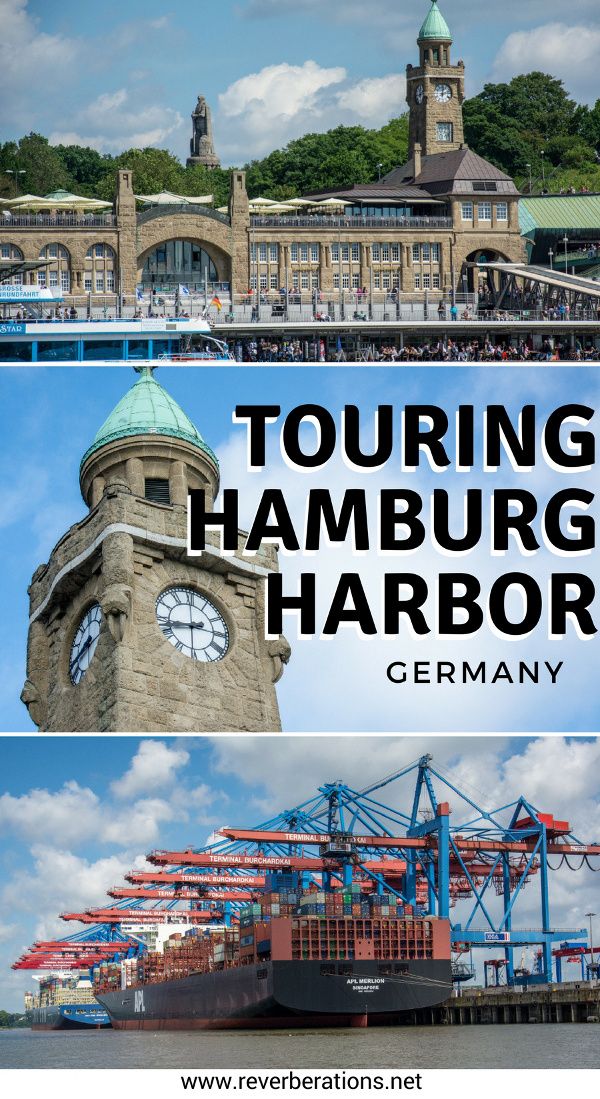The Port of Hamburg in Germany plays such a central part in the city’s history and identity. Today, the city is modern, urban and cool with a diverse population and an equally unique culture. But you can’t avoid the waterfront that’s so central to Hamburg.
There are no shortage of cruises around and through the city. The city cruise I took was one of my favorite things I did in Hamburg during my visit. It was fun and informative. But it isn’t just the historic Speicherstadt, a huge and complex series of warehouses, or the countless hangouts and pretty buildings along the waterfront. The Port of Hamburg will impress with its mix of engineering, mechanics, ingenuity and scale. Hey, this is Germany after all.
The History of the Port of Hamburg
Hamburg’s port is bustling and state of the art. But, no doubt, things were a bit different when it was founded in 1189 by Frederick I. The location was chosen strategically as it is less than 70 miles from the North Sea on the Elbe River.
By the late 19th century, Hamburg was Germany’s main port for transatlantic passengers as well as cargo. The city’s historic Speicherstadt can attest to just how in demand Hamburg Harbor was.
These days the Port of Hamburg is Germany’s largest — and one of Europe’s largest — harbor. The Port of Hamburg serves a variety of functions. There are terminals for containers, multi-purpose (that is, cargo that can’t be containerized), bulk cargo and cruise ships.
The Container Terminal
When you stand on the edge of the harbor at Landungsbrücke, for example, and look across the water it’s hard to miss the freight containers, cargo ships and large equipment. But it isn’t until you take a cruise through the Container Terminal that you fully realize how impressive and awe inspiring it all is.
The Port of Hamburg is made up of several Container Terminals with the ability to handle roughly 12 million of those standard 20-foot containers. The HHLA Container Terminal Altenwerder, for example, is one of the most state of the art and efficient container terminals in the world since opening in 2002. The terminal is able to move containers around the site and sort them using driverless Automated Guided Vehicles (AGVs) and computer-controlled cranes.
Those statistics sound big but until you sail past on a cruise and see them up close it can be difficult to fully comprehend what that looks like. The size and magnitude is amazing. Anyone who has difficulty keeping their kitchen pantry organized or knowing where your car keys are will be amazed at how they manage and keep track of millions of container vessels.
The Cruise Terminal
Three cruise terminals in Hamburg handle thousands of cruise ship passengers. The largest cruise ships in the world can tie up here and passengers can make quick excursions to Hamburg city center.
Modern cruise ships are the size of skyscrapers. So cruising by on a small vessel is a little intimidating. It’s also a little funny to sail past and see vacationers on the cruise ship, some on balconies outside their room. Be sure to give them a wave!
Rugenberg Lock (Rugenberger Schleuse)
With as sprawling as the Port of Hamburg is, it isn’t too surprising that there’s a lock in the harbor. The Rugenberg Lock (Rugenberger Schleuse) separates the Rugenberger Hafen (Rugenberg Harbor) from Köhlbrand on the western portion of the port near the HHLA Container Terminal Altenwerder. The lock dates all the way back to 1914.
But it goes without saying that the demand that the lock sees today is much different than it saw a century ago. In 2012, for example, approximately 22,000 vessels made use of the lock each year. So in 2015 the Rugenberg Lock underwent renovations and updates, including making the canal deeper to handle larger ships and vessels. Today the lock’s chamber is 110 meters long and 18 meters wide. It can be operated on site or remotely.
Popular Sights and Attractions at Hamburg Harbor
I’ll admit, the mechanical and engineering feats of the harbor may not impress everyone. Although I maintain that even the most skeptical should at least see it once! For the more culturally inclined, there is no shortage of sights and attractions along the waterfront of the Hamburg Harbor. Here are a few of my favorite things to see and do along the Port of Hamburg.
Read More: 6 Fun Things to Do in Hamburg, Germany
Landungsbrücken
On your first visit to the Port of Hamburg, St. Pauli Landungsbrücken might be a good place to start. The landing area is a 700-meter-long complex of ten flexible, connected bridges.Think of it like the boardwalk at the beach. Cafes, shops and attractions line the area. But it’s also a great place to get a view of the entire Hamburg Harbor.
Old Elbe Tunnel (Alter Elbtunnel)
You can cruise over the water, but what about going…under? The Old Elbe Tunnel is a 400-meter-long passageway that connects St. Pauli-Landungsbrücken with Steinwerder. On each side there are historic elevators for raising and lowering cars into the passageway. Pedestrians and cyclists can use the tunnel free of charge but during the work week from 5 am to 8 pm cars are required to pay a 2 Euro toll.
Elbphilharmonie
Nearly a decade after laying the foundation, Hamburg’s new concert hall finally opened in January 2017 right along the harbor in HafenCity. The Elbphilharmonie is currently the tallest building in Hamburg as well as one of the largest concert halls in the world.
In addition to a world class concert hall, the building also houses a luxury hotel. But you can visit the Elbphilharmonie without breaking the bank — or spending any money at all, in fact. The building has a viewing plaza that is open to the public. From the open air observation area you can get a 360-degree view of the city: the Speicherstadt, the cargo in the modern container city, and all up and down the Elbe River.
Fischmarkt (Fish Market)
The Fischmarkt tradition began all the way back in 1703. It shows no signs of slowing down. The building itself is from around 1895 and renovated in the early 1980s. Today it is recognized as a cultural heritage monument.
Every Sunday morning bright and early in a beautiful historic building along the Elbe, the Altonaer Fischmarkt opens. Tourists flock to watch fishmongers, salesman and fish buyers as they keep a longstanding tradition alive. At the Fischmarkt you aren’t limited to only fish. You can also find produce and meats. It’s a lively atmosphere that you’re sure to remember.
Historic Ships
Year round there are ships docked at the harbor that tourists can visit. Whether you’re interested in tall ships, freighters or submarines, there is a boat (or two) for you.
There are several notable vessels-turned-museums that you can visit. There’s the Cap San Diego, the last of a series of fast cargo ships; the U-434, a Russian submarine that is one of the largest non-atomic submarines in the world; and the Rickmer Rickmers, a three-masted tall ship that’s more than a century old.
Spend the Night and explore Hamburg, Germany.
All photos are my own.
